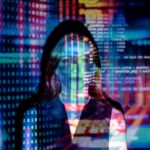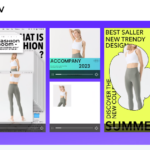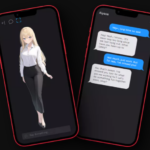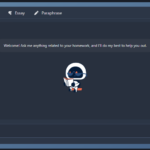You're delving into the world of AI content creation, but have you considered the copyright issues? It's a complex landscape that's evolving fast. You'll explore legal aspects, ethical dilemmas, and real case studies.
You're navigating uncharted territory, but don't worry! We're here to guide you through the stormy seas of AI and copyright law. Let's demystify the future implications together and develop ethical guidelines for this burgeoning field.
Ready to dive in?
Key Takeaways
- AI content creation raises questions about copyright ownership and authorship disputes.
- Determining copyright ownership of AI-generated content is complicated, as traditional laws assign ownership to the creator.
- The originality of AI-generated content is questioned when the AI is trained on existing copyrighted material.
- Liability for copyright infringement by AI is unclear, involving the AI, its programmer, or the user.
Defining AI Content Creation
Before you can fully grasp the copyright issues in AI content creation, it's crucial to understand what AI content creation actually entails. Essentially, it's the process whereby artificial intelligence systems generate content that would traditionally be produced by a human. This could be anything from writing articles, creating music, or even designing graphics.
Now, you might be wondering, how's that possible? Here's the thing: AI is fed with massive amounts of data from which it learns patterns and subsequently generates content based on those patterns. It doesn't create out of thin air, it's all based on the information it's been given.
You've probably come across AI content without even realizing it. Ever read a news report on a website and found it impressively detailed and accurate? There's a good chance that was written by AI. What about that catchy tune you heard in an advert? That could have been composed by AI too.
But here's where it gets tricky. Who owns the copyright to this content? Is it the person who programmed the AI, the person who fed it the data, or the AI itself? This is the crux of the copyright issues in AI content creation. It's a complex issue without a clear-cut answer, which is why it's so important to have a solid understanding of what AI content creation is before diving into the copyright aspect.
Legal Aspects of AI-generated Content
Now, let's explore the legal aspects of AI-generated content.
We'll specifically focus on two key points: who truly owns AI-created content and who's responsible when copyright infringements occur.
These issues might seem complex, but we'll break them down for you.
AI Content Ownership
When you delve into the legal aspects of AI-generated content, you'll quickly run into complex issues of content ownership and copyright laws. The legal terrain is challenging, mainly because AI creations blur the line between human and machine authorship.
To navigate this landscape, you should consider:
- The legality of AI-generated content: Is it an infringement if AI creates similar content to a human's copyrighted work?
- Authorship disputes: If AI creates content, who legally owns it?
- Changes in laws: Current copyright laws weren't designed for AI. How should they adapt?
- AI rights: Should AI have any rights to the content it generates?
Each of these points raises intricate legal questions, reflecting the unique challenges posed by AI in the realm of copyright law.
Liability for Infringements
Navigating the intricacies of liability for copyright infringements in AI-generated content can be a daunting task, but it's one you need to understand to protect your legal interests.
Current copyright law doesn't adequately address AI-generated content, creating a legal gray area. You may wonder, who's held responsible if AI infringes upon someone's copyright? It's not entirely clear. This ambiguity can lead to costly legal battles.
Therefore, it's crucial to implement safeguards. Ensure your AI system is programmed to respect copyright boundaries. Regularly monitor the content it produces.
Copyright Law and AI
In your quest to use AI for content creation, it's crucial you understand the complexities of current copyright laws and how they apply to artificial intelligence. At present, copyright laws vary by jurisdiction, but many are yet to fully address the unique issues brought about by AI creations.
One of the primary concerns is determining who owns the copyright to AI-generated content. Traditional laws assign ownership to the creator, but when the 'creator' is a machine, things get complicated. The law hasn't caught up with technology, and there's no consensus on whether AI can own copyrights or if they should be attributed to the AI's programmer or user.
Here are a few aspects to consider:
- Authorship: Can AI be considered an author? If so, who holds the copyright – the AI, its programmer, or the user who input the data?
- Originality: For a work to be copyrighted, it must be 'original'. But if an AI is trained on existing copyrighted material, is its output original or merely a derivative of its training data?
- Duration: Copyright laws protect works for a certain period after the author's death. But if the 'author' is an AI, when does this period start and end?
- Infringement: If an AI infringes on someone else's copyright, who's liable – the AI, its programmer, or the user?
Ethical Issues in AI Content Creation
You've explored copyright issues in AI content creation. Now let's switch gears and tackle ethical concerns.
It's crucial to consider who should have ownership rights when AI is the creator. Additionally, we need to discuss the importance of establishing ethical guidelines for AI content creation.
AI Ownership Rights
How do you determine who owns the rights to content created by artificial intelligence? It's a complex issue with no straightforward answers. You must consider several factors:
- Is the AI autonomous or was it directed by a human?
- Who owns the AI: the developer, the user, or the AI itself?
- What was the level of human involvement in the creative process?
- Can AI creations be considered as intellectual property?
Ultimately, the ethical implications are staggering. If an AI creates content autonomously, should it be recognized as the owner? If a human guides the AI, does the human hold the ownership rights? Navigating these questions is crucial to understanding copyright issues in AI content creation.
Ethical Guidelines Needed
Before diving deeper into AI content creation, it's essential you understand why we urgently need ethical guidelines in this rapidly evolving field.
AI's capacity to create original content raises critical ethical issues such as plagiarism, authenticity, and infringements of intellectual property rights. Without ethical guidelines, AI could potentially plagiarize existing content or create deceptive content, blurring the line between human creativity and machine output.
Additionally, there's the risk of AI infringing on intellectual property rights, sparking legal battles. To protect creators, uphold the integrity of content, and maintain a fair playing field, ethical guidelines are necessary.
They'll provide direction, ensuring AI is used responsibly in content creation, and foster trust in the industry.
Case Studies of AI Copyright Disputes
In the realm of AI content creation, let's delve into specific instances where copyright disputes arose, providing valuable lessons for your own projects. These cases underscore the complexities of copyright law and demonstrate the challenges of applying traditional legal frameworks to emerging technology.
Consider these four instances:
- The Associated Press vs. Meltwater: Meltwater, a media monitoring company, used AI to scrape news articles from the AP's website without permission. The court ruled in favor of AP, stating that Meltwater had infringed on the news agency's copyright.
- Oracle vs. Google: Google used Java APIs to build its Android system. Oracle, owner of Java, sued Google for copyright infringement. Initially, courts sided with Oracle, but a later ruling stated that Google's use was fair because it contributed to software innovation.
- Authors Guild vs. Google: Google digitized millions of books for its Google Books project. The Authors Guild sued for copyright infringement. The court sided with Google, ruling that digitizing books and providing snippets in search results was transformative and a fair use.
- Warner Bros. vs. Innovative Artists: Innovative Artists ripped DVD screeners and streamed them to its clients. Warner Bros. sued for copyright infringement. The court ruled in favor of Warner Bros., stating that ripping DVDs, even for private use, constituted copyright infringement.
These cases don't offer clear-cut solutions but they do highlight the need for careful consideration when using AI in content creation. You'll want to seek legal counsel to ensure your AI project doesn't unintentionally infringe on existing copyrights.
As you can see, the legal landscape around AI copyright is complex and constantly evolving.
Future Implications for AI and Copyright
Navigating the evolving landscape of AI copyright, you'll need to grapple with potential future implications that could significantly impact your content creation processes. As AI technology advances, we're likely to see increased instances of AI-generated content, which may blur the lines of copyright ownership further. In fact, you could be inadvertently stepping into a legal minefield without even knowing it.
As AI's role in creating content expands, questions regarding copyright infringement will become more complex. For instance, who's to blame if an AI tool infringes on an existing copyright? Is it your responsibility as the user, or does the onus lie with the creators of the AI tool? Future legal cases could establish precedents that shift the burden of responsibility.
Moreover, as AI becomes more adept at creating content that mirrors human creativity, we may see a push for AI to be recognized as a legal entity, capable of holding copyright. This could have profound implications for you as a content creator. If AI can hold copyright, your use of AI tools may require negotiating licensing agreements or risk infringement.
Lastly, global variations in copyright laws may complicate matters. While some countries may grant AI-generated content copyright protection, others may not. This lack of international consensus could pose challenges for you in managing your AI-created content across different jurisdictions.
Developing Ethical Guidelines for AI Content
As you delve deeper into AI content creation, a crucial step is developing a set of ethical guidelines that'll guide your work. These guidelines determine not just the legality of your operations, but also how your AI respects and understands the rights of original content creators.
When creating these guidelines, you need to consider a few critical aspects:
- Respect for intellectual property: Ensure your AI doesn't infringe on others' copyrights. It's not just about avoiding legal issues, but also about valuing the hard work and creativity of others.
- Transparency: Be clear about your AI's capabilities and limitations. Don't claim your AI is creating entirely original content if it's heavily reliant on existing works.
- Accountability: Establish who's responsible if your AI infringes on copyright. Is it you, the developer, or the end user?
- Fair use: Understand the concept of fair use and how it applies to AI. This can often be a gray area, so it's essential to stay informed and up-to-date.
Remember, these guidelines aren't just about protecting yourself and your AI. They're also about respecting the rights and efforts of original content creators.
As AI becomes more prevalent in content creation, it's vital to navigate this new frontier with care and integrity. By doing so, you'll build not only a successful AI but also a respected and ethical one.
Frequently Asked Questions
How Is the Quality of Ai-Generated Content Compared to Human-Created Content?
When comparing AI-generated content to human-created content, you'll find differences.
AI can churn out content quickly, but it may lack the creativity and nuance of human writing.
It's great for data-driven tasks but can stumble in emulating human emotion or humor.
However, as technology advances, AI's capabilities are improving.
Still, it's important to remember that AI is a tool to assist you, not replace human creativity.
Are There Any Specific AI Technologies Used in Content Creation?
Yes, several AI technologies are used in content creation.
For instance, natural language generation (NLG) is commonly used for writing articles or reports.
Machine learning algorithms can create content based on patterns and data input.
There's also GPT-3, a language prediction model that can write like a human.
These tools can enhance productivity and creativity, but they're not perfect and still require human oversight for optimal results.
Can AI Be Used to Create All Types of Content, Such as Music, Articles, and Art?
Absolutely, you can use AI to create various types of content like music, articles, and art. AI's capabilities aren't limited to one medium.
For music, AI can compose melodies.
In writing, it can generate articles.
And for visual art, AI can produce unique designs.
However, it's crucial to remember that while AI can create, it lacks human touch and emotional depth.
It's a powerful tool, but can't fully replace human creativity.
How Can AI Help in Detecting Copyright Infringement?
AI can significantly aid you in detecting copyright infringement. It's capable of scanning and analyzing vast amounts of content in a short time, identifying potential breaches. For example, it could compare a piece of music, art, or text against a database, spotting similarities that may indicate infringement.
AI could also monitor online content in real-time, alerting you to possible violations almost immediately. So, AI isn't just a content creator, it's also a diligent copyright guard.
What Are the Career Implications for Content Creators With the Rise of AI in Content Creation?
As a content creator, the rise of AI in content creation could significantly influence your career. You'll need to keep up with new technologies and adapt your skills accordingly.
AI could also help streamline your creative process, but it might also mean increased competition.
Moreover, you'll have to be more vigilant about copyright issues as AI becomes more prevalent in content creation.
It's an exciting, yet challenging time to be in this field.
Conclusion
So, you've dived into the complex world of AI and copyright. It's clear that navigating the legal and ethical waters of AI-generated content isn't easy.
But as technology evolves, so should our understanding and regulations. Stay informed, consider the implications, and advocate for ethical guidelines.
In this rapidly changing landscape, your awareness and actions can help shape a fair and beneficial future for AI content creation.
